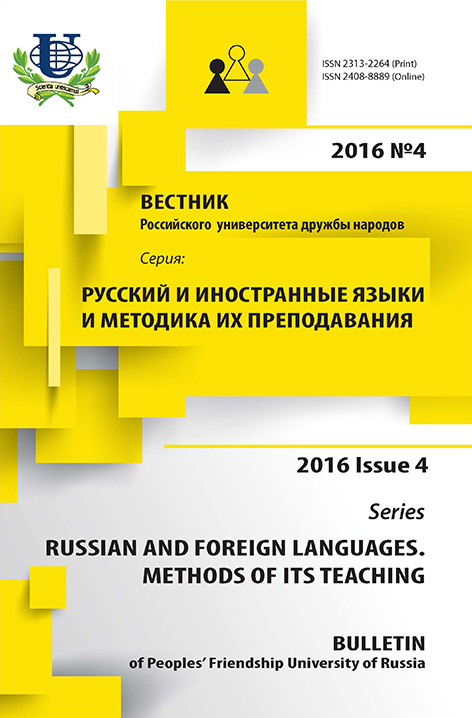THE IMPACT OF CORPORA RESEARCH FINDINGS ON THE ENHANCEMENT OF LEARNER SPOKEN AND WRITTEN ENGLISH LANGUAGE STYLE AT THE ADVANCED LEVEL
- Authors: Zakharova EA1
-
Affiliations:
- Peoples’ Friendship University of Russia
- Issue: No 4 (2016)
- Pages: 93-99
- Section: Articles
- URL: https://journals.rudn.ru/russian-language-studies/article/view/14514
- ID: 14514
Cite item
Full Text
Abstract
This article explores how corpora can help us to enhance learners’ spoken and written English language skills. Speaking takes place through sound and is instant, while writing creates a material record that is read later. These facts lead to substantial linguistic differences between the two forms ofcommunication. A corpus of spoken or written texts helps us understand these differences through real examples.Corpus analysis can also assist in addressing the problems of what to include in an advanced syllabus to help our learners to use grammar that is appropriate to the mode of communication. Mike McCarthy, Emeritus Professor of Applied Linguistics at the University of Nottingham, UK, suggests that teaching English at the advanced level among other issues should include:Key differences between spoken and written grammar (e.g. ellipsis and substitutions in spoken language).Grammar that enhances style and promotes academic success.Examples of grammatical features that correlate with high grades (and are called “positive discrimination features”) include: coordinating adjectives, e.g. George is a compassionate and caring friend; nominalization - packing of information into the noun phrase which otherwise might be given in, for example, the verb phrase (compare The enemy began to attack at noon. The enemy attack began at noon.); modality (using a modal verb and a modal adverb), (compare Education will be different. Education will certainly be different.)
About the authors
E A Zakharova
Peoples’ Friendship University of RussiaMiklukho-Maklaya str., 6, Moscow, Russia, 117198
References
Supplementary files














